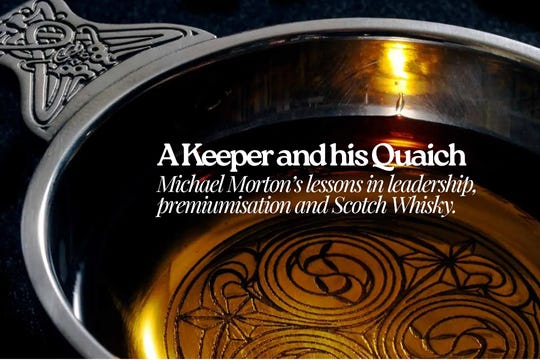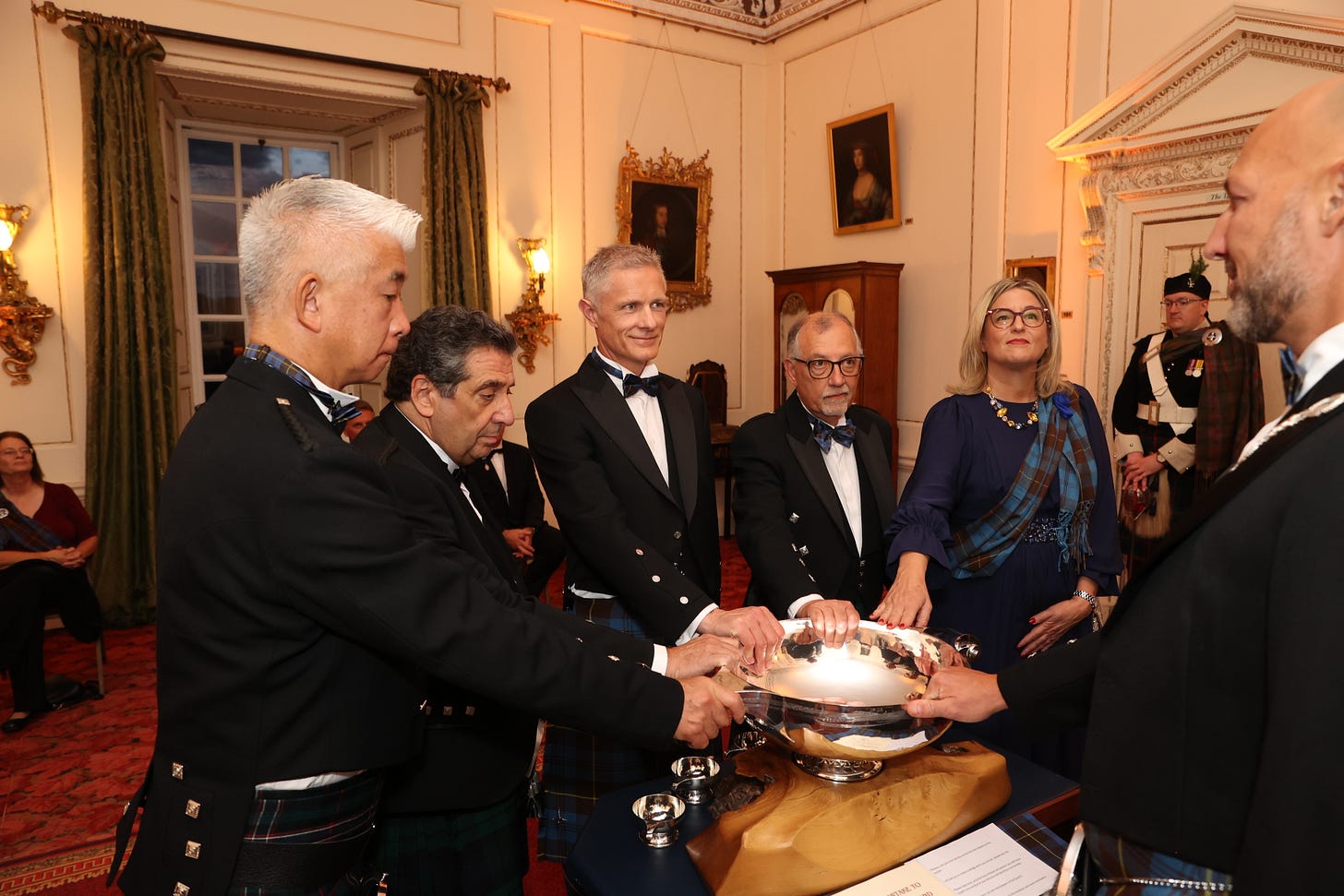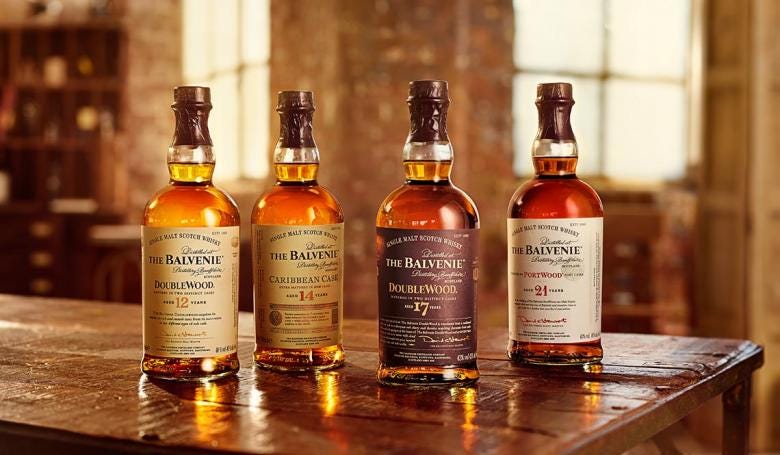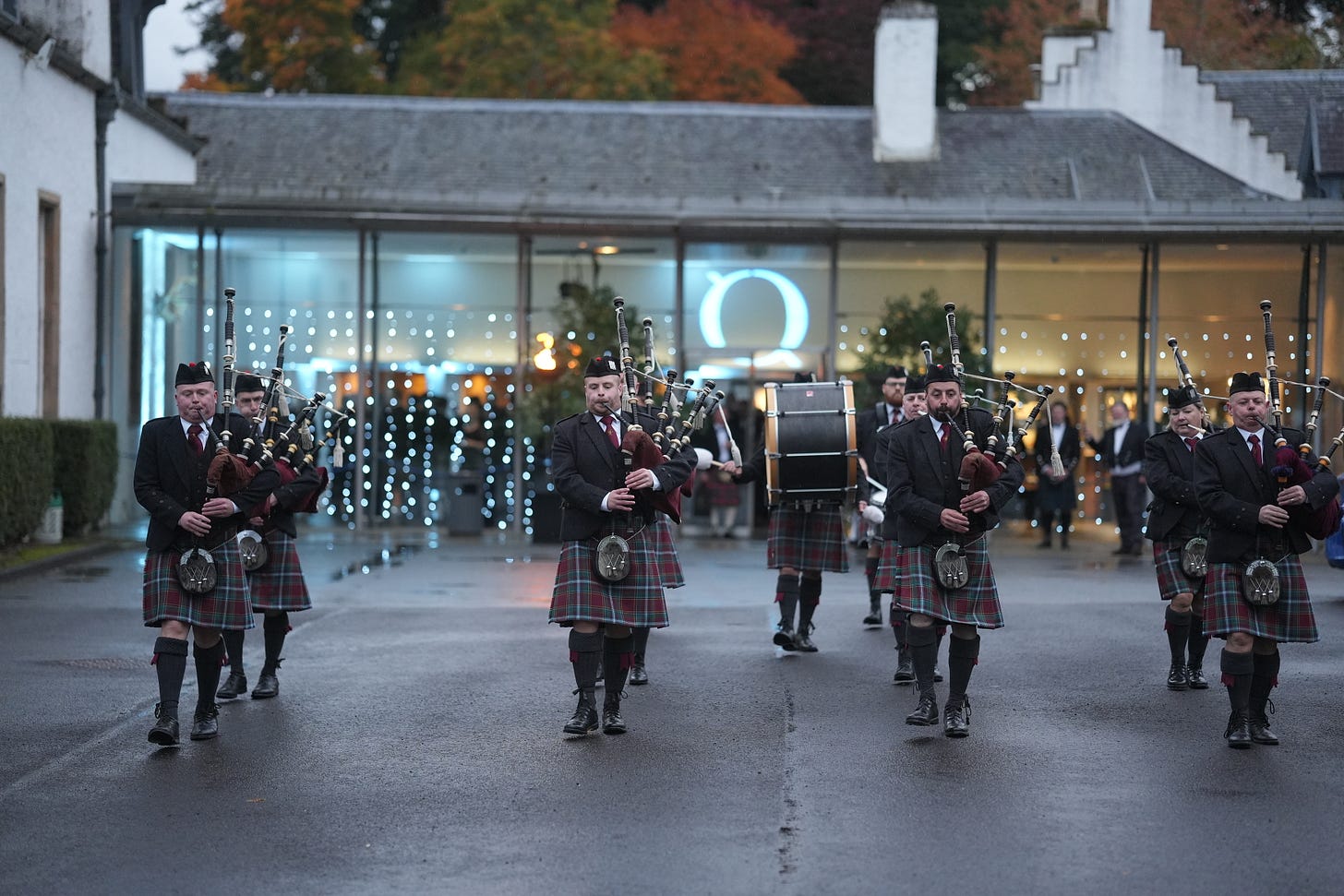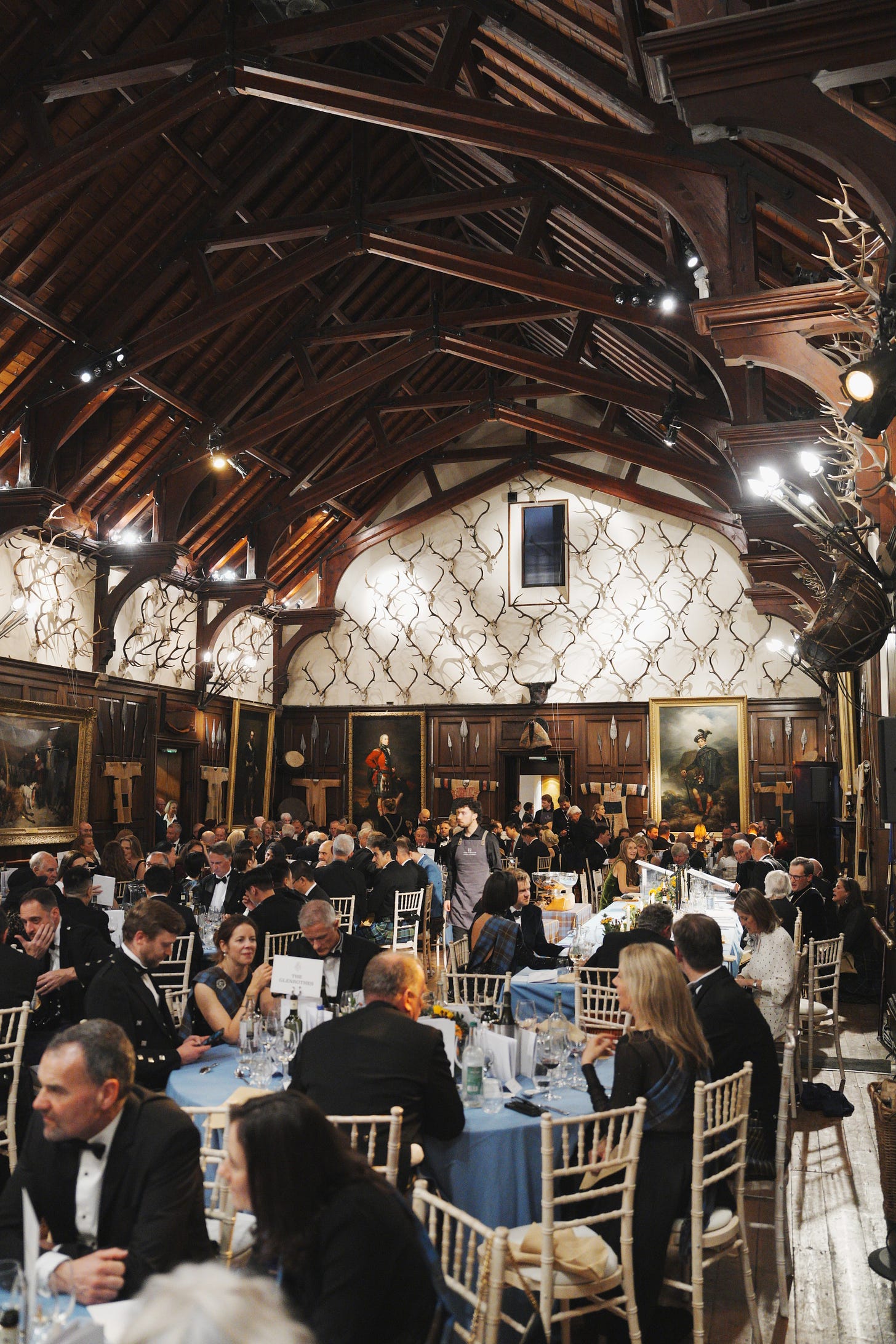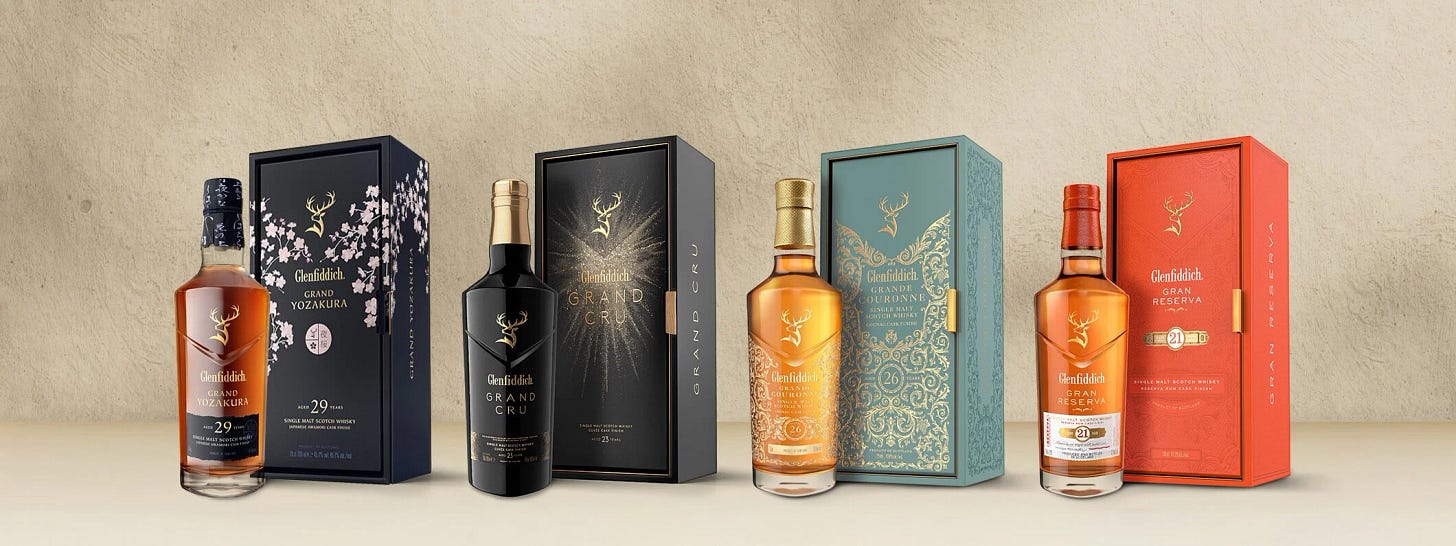The Keeper and the Castle: Michael Morton’s Journey to Scotch Whisky’s Inner Circle
Keepers of the Quaich was established to recognise those involved in the production, promotion or protection of the world’s finest spirit. Morts is only the 8th New Zealander to be awarded the honour.
“It gives you the responsibility to act as a leader and do the right thing.”
It could be a quote from any leader in almost any industry, but when Michael Morton (or Morts, as he’s known) says it, he’s talking about stewardship. About what it means to be a custodian of Scotch whisky in a market 18,000 kilometres from Scotland.
When the Federal Merchants’ MD placed his hand on a giant silver quaich at Blair Castle, he wasn’t just accepting an honour – he was becoming part of New Zealand’s place in Scotch whisky’s global story. And yes, there were bagpipes. Fanfare. A banquet in a castle.
Let’s be honest: the drinks industry loves its awards. We hand out medals like confetti at a wedding, slap “Best in Show” on everything from gin to glassware, and create enough trophies to stock a small museum. But some honours operate on a different frequency entirely.
The Keeper of the Quaich isn’t something you campaign for. You can’t buy your way in. You get nominated by people who’ve watched you work, who’ve seen you build something meaningful in Scotch whisky, and who believe you’ve earned a seat at one of the industry’s most exclusive tables.
When Morts walked into Blair Castle in Scotland’s Perthshire Highlands earlier this year, he became one of roughly 2,700 people worldwide – and only the eighth New Zealander – to receive this designation.
This matters. Not just for Morton, not just for Federal Merchants, but for what it signals about New Zealand’s evolution from Scotch whisky consumer to Scotch whisky market that matters. The Keepers are a unique industry initiative in the world of spirits. A group of whisky houses that fiercely competie for consumer affections, they band together twice a year to recognise those doing significant work to nurture, protect and promote Scotch whisky, uisge beatha - the water of life.
A Long-Serving Guardian
“I love Scotch. I love the industry,” Morts tells me, and there’s none of that corporate-speak polish you sometimes get when people talk about their work. “I’ve been fortunate enough to visit quite a few distilleries in Scotland, and when you meet the people, hear their stories and see them making the whisky, and the passion that they’ve got for it – it’s hard not to get swept up in all of that.”
This isn’t a recent romance but a path that has woven through William Grant & Sons multiple times – at Lion when they held the portfolio, directly for the whisky house itself, and now as Managing Director of Federal Merchants, which has distributed the majority of William Grant’s brands in NZ since 2017.
Michael is proud and open about that long standing connection, after all, relationship is at the heart of the Scotch industry. “You do need to be nominated,” he explains. “Now I’m a keeper, I can literally nominate anyone. But there is definitely a lot more weight behind your nomination if one of those whisky houses is nominating you.”
Because becoming a Keeper isn’t about sales targets. It’s about what you’ve actually done to advance Scotch whisky as a category. So I asked him where he sees the impact he’s made as a leader in the NZ industry and in particular with this recognition for Scotch whisky.
“Good question.”
When Federal Merchants took over the William Grant’s portfolio from Lion in 2017, they inherited brands underperforming their potential. Take The Balvenie – Morton’s personal favourite, with the 14-year-old as his everyday dram and the 21 Year Old Portwood for when he’s feeling generous.
“When the brand was at Lion, they had the 12 year old and Balvenie was very much an afterthought,” he recalls. “It kind of stuck around the same volume, year in year out. One of the first things we did at Federal was just to unlock the rest of the premium portfolio.”
Growing luxury malts in a market conditioned to think of Scotch primarily as blended whisky required actual strategy.
“That was one of the things that was called out in my nomination, actually – the role that I’d played in growing luxury malts here in NZ,” Morton says. “We’ve now brought in the first 50 year old Glenfiddich bottles into the country, things like that. A lot of people’s experiences in the past had really just been blended scotch. So we’ve gone out of our way to open up the consumer experience and bring premium expressions into the market.”
Federal has significantly invested in advocacy and education, including bringing in brand ambassadors, supporting consumer whisky events like Dramfest in Christchurch and convincing retailers to showcase premium single malt whisky in-store. That particular endeavour led to installing “maybe two, 300 Glenfiddich stands in retail,” Morton estimates.
“That was a bit of a turning point in convincing not just consumers but retailers that, hey, there is a market for this, and if you showcase them, guess what? You’re actually going to sell some.”
The Castle, The Quaich, The Ceremony
Blair Castle isn’t some industry conference in a hotel ballroom with bad coffee.
“It’s a beautiful ceremony,” Morton says. “The Scots do pomp and ceremony just as well, just slightly differently. Lots of bagpipes, lots of processions, and because we ate haggis, of course there’s the ode to the haggis.” The evening is a celebration of Scotch whisky’s best marketing strategy—a genuine camaraderie where time spent goes by in a blur.
Forty-eight new Keepers were inducted at Morton’s ceremony. You arrive to the Atholl Highlanders – Europe’s only private army – and move through different rooms in elaborate orchestration but the ceremony itself is smaller, private and imbued with meaning as new Keepers are inducted just five at a time.
“You go into the ceremony room, where the Grand Master is with the big quaich (the Grand Quaich of the Keepers of the Quaich),” Morton explains. “A citation is read out about you and the other four that you’re in that particular room with. You put your hand on the quaich and you take an oath to uphold the values and keep promoting scotch. It’s kind of like getting married, I guess – you say I do.”
Then comes the feast: 250-300 people, five courses, five whiskies matched to each. And not just any whiskies: Morton got to drink a Balvenie 19 year old that isn’t even available in New Zealand. The whole event ran until nearly midnight.
“It was one of those ‘money can’t buy that’ kind of experiences,” he says. “Something I’ll never forget.”
One detail he particularly loved: “The ceremony is exactly the same every single time. One of the guys on our table, Ken – he’s the William Grant’s representative on the committee – he’s been to it 30 times.” So if it sounds full of ritual, it is. With just slightly less hazing than welcoming a new brother-in-law to family Christmas.
Morts spent three days before the ceremony at Dufftown, living on-site at Balvenie House with three other William Grant’s nominees. “We spent three days together with some of the Scottish people, and they’re just so nice. And I just think there’s a lot of commonality, apart from the accents, in the way that we look at life and the way that we treat people, and how friendly everyone is.”
“We couldn’t be further away – you couldn’t get further away from Scotland than New Zealand,” Morton laughs. “But we’re very similar people.”
And he’s right for a reason. When you start exploring New Zealand’s history, people and whisky, there are deep threads of connection back to those Caledonian roots. It’s in the DNA, really – that sense of hospitality, of generosity, of valuing craft and time and doing things properly.
What It Means Now
Here’s what they made clear to Morton at the ceremony: “This is not to make you work harder on Scotch in the future. This is really a recognition and reflection of what you’ve done to date.”
But of course it changes things, Morts reflects. Hence the responsibility to do the right thing.
“Being a keeper kind of makes you broaden your horizon, just from your brand to the category as a whole,” Morton observes. “It gives you the responsibility to act as a leader and do the right thing.”
The Reality Check
Scotch whisky is having a rough time globally. New Zealand isn’t immune.
“Consumers – there’s only so many price rises they will accept,” Morton says frankly. “They get to the point where they just go, no, enough’s enough. I’m actually not going to buy that $80, $90, $100 bottle of whisky. I’m going to buy the $50 this time.”
Federal Merchants plays heavily in the premium end. Result? “Effectively, to maintain turnover in the market, all distributors and everyone involved are all having to squeeze their own margins.”
Morton’s been around long enough to see the ebbs and flows. “We’ve been around long enough to know that it is a cycle. We’re hoping that 2026 will return to some sort of normality when some people are willing to pay that extra to buy those premium products again.”
Here’s the thing about industry cycles: a lot of people working in the Scotch industry didn’t know, weren’t planning, weren’t prepared. You can’t get away with that for long. Morton has been in the industry long enough to know you survive by maintaining your allocations (product in country), by keeping your relationships strong, and not panicking and making rash decisions when times get tight.
Allocations have always been a challenge for small market importers. “Once you’ve got an allocation of a product or an aged malt, if you don’t use that allocation in any particular year, you can lose it. So the challenge for us is to maintain our allocations when we’re going through this phase of downturn, so that we’re fully stocked and supplied for when the market does return.”
Federal Merchants will keep bringing in the good stuff, even if it means losing margin short-term. When the market turns – and it will – they want to be ready.
The Blend Comeback
While luxury malts struggle, blended Scotch is “on fire at the moment, because consumers are trading down to mainstream blended whisky, just because it’s more affordable.”
Which brings us back to that idea of leadership. Of responsibility.
“We have the responsibility to make sure that Scotch is accessible and competitive in the market without cheapening blends or the category,” Morton explains. “Because Scotch is not, Scotch is premium. It’s harder to make. You’ve gotta put it in the barrel for three years. You can almost turn on a tap and make vodka, but you can’t do that with Scotch. So we certainly don’t want to be cheapening Scotch or giving it away. But you also do need to make it accessible.”
The tightrope: maintaining competitiveness while preserving premium positioning.
It’s a significant challenge to explain the value of time, particularly in a cost-of-living crisis when consumers are watching every dollar. But that’s the job. That’s the responsibility that comes with being a leader in the category.
The Independent Advantage
Federal Merchants is 100% New Zealand owned and operated. In an industry increasingly dominated by multinational consolidation, that’s rare.
“I think coming through those COVID years, everyone became quite patriotic and supporting local became really kind of like a badge of honour,” Morton observes. “We don’t shout it from the rooftops, but we just mention it – it’s in our email signature, just little things like that.”
The advantage? “They all own their own businesses, and they like the fact that we own ours. And they especially like it – our suppliers – like the fact that when they’re talking to me, I’ve got shares in the business, so they’re talking to one of the owners, rather than a brand manager or a marketing manager who might leave in a couple of years.”
The downside? “We haven’t got big, deep overseas pockets to absorb losses like some of our competitors.”
But: “If we think something’s a good idea, we can do it the next day. I’ve worked in those big distributors for big global companies a lot of my career, and it always slowed you down when you had to go up the chain of command. We’re nimble, and we have to be, because we haven’t got the money that some of these international companies have. So where we can win is on speed and flexibility.”
The Message to Industry
When I ask what he’d tell trade customers right now, Morton doesn’t hesitate: “Tough times never last, but tough people do. You’ve just got to survive and be ready for when the market does turn, because it will.”
He’s worried about venues closing. “We’ve seen so many restaurants and shops even closing recently, which is really, really sad. The danger is that people aren’t brave enough to open new venues. But thank God there are people out there still willing, because life would be pretty boring if we didn’t have restaurants and bars to go to.”
This is the message that needs to be heard across the industry right now. Don’t make groundbreaking or rash decisions based on the market as it is today. Survive. Be ready. Support each other.
“We’re all selling sociability and hospitality. It’s really important that we continue to thrive and look after each other as an industry, and make sure that we last. Because life would be pretty boring if we didn’t.”
And personally? He’s still reaching for that Balvenie 14. “I guess that’s one of the traps when you’re distributing some amazing products – you tend to drink those all the time. Nothing wrong with that.”
Though he did give The Balvenie’s Malt Master Kelsey McKechnie special mention for The Sweet Toast of American Oak. The woman is doing extraordinary work, and Morton knows it.
The Responsibility
For most Scotch single malt drinkers in New Zealand, they likely don’t realise how much they have to thank Morts and his teams for over the years. Did you taste the Glenfiddich Grand Cru after it won Best in Show at the 2022 New Zealand Whisky Awards? Have you seen the Gran Reserva or Project XX on a shelf or backbar? Tasted the Balvenie or enjoyed Monkey Shoulder? The journey from Glenfiddich 12 to the 50 year old bottles in market has been hard-won every step of the way. So the steps Morton took into Blair Castle weren’t just for himself, but for all the people that did the work along the way. And in a way, for the New Zealanders who love Scotch and keep pursuing their passion for it.
Because here’s the thing about becoming a Keeper of the Quaich: it’s not really about the ceremony, the castle, or even the recognition (though those are nice). It’s about being part of a global community that genuinely gives a damn about Scotch whisky as more than just a product category. It’s about caring enough to build bridges between Scotland and New Zealand that go deeper than simple distribution agreements. It’s recognition for doing the work but more than that, it’s a reminder that leadership in Scotch whisky isn’t about quarterly targets or market dominance but often about staying the course and doing things the right way.
The Quaich itself is a two-handled shallow cup, that has come to represent trust, love and friendship. It’s an apt reminder that being a Keeper is about stewardship—promoting, protecting and nurturing all that is Scotch whisky from the juice to the relationships with the people who make it, sell it, serve it, and drink it.
Even from the furthest corner of the planet.
Michael Morton remains Managing Director of Federal Merchants. His Balvenie 21 Year Old Portwood allocation remains jealously guarded. The haggis was consumed safely at the ceremony. The bagpipes, sadly, had to stay in Scotland.
Keen to hear more from industry leaders? Perhaps you have a burning question. The inbox in open for your questions, requests and feedback.



